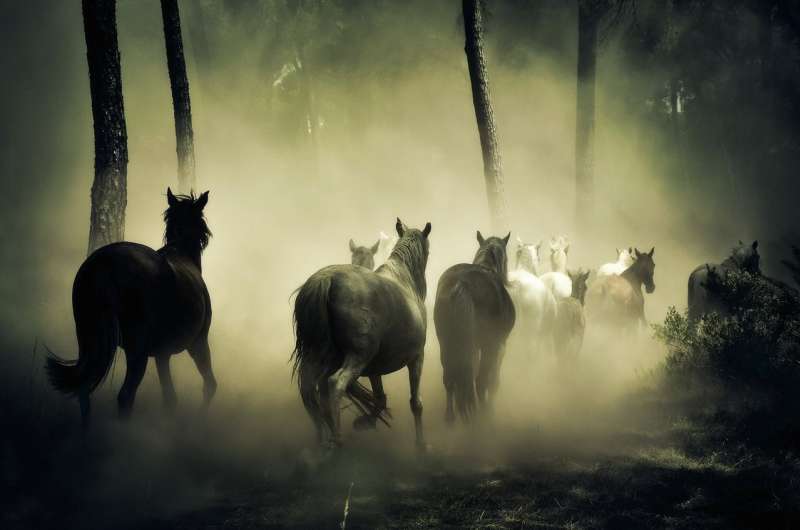Credit: CC0 Public Domain
Colorado State University recently released a study touting the use of the GonaCon-Equine immunocontraceptive vaccine as a longer-lasting solution to decreasing fertility in wild horses.
The CSU research team first vaccinated mares at the Theodore Roosevelt National Park in North Dakota in 2009 and saw a modest decline in foaling. Researchers decided to re-administer the vaccine to the same mares in 2013.
"No one had tried revaccinating with GonaCon-Equine and it's proving to be much more successful than we expected. ... It has been about 90 percent effective for going on four years now," said Dan L. Baker, Ph.D., co-principal investigator on the project and an affiliate faculty member in the Department of Biomedical Sciences at the CSU College of Veterinary Medicine & Biomedical Sciences.
The vaccine produces antibodies against gonadotropin-releasing hormone, which prevents the mares from ovulating and from displaying sexual behavior, said Terry M. Nett, Ph.D., co-principal investigator on the project and a professor in the CVMBS' Department of Biomedical Sciences.
This new vaccine could aid in better controlling the population of wild horses. The number of wild horses and burros that can live in balance with the ecology of public lands is 27,000 but there are currently 82,000 wild horses and burros living on public lands, according to the Bureau of Land Management.
Provided by Colorado State University






















